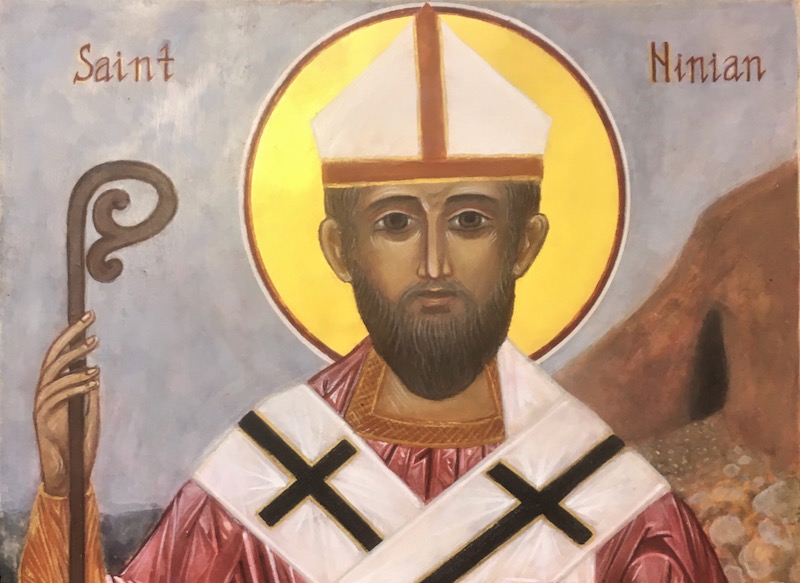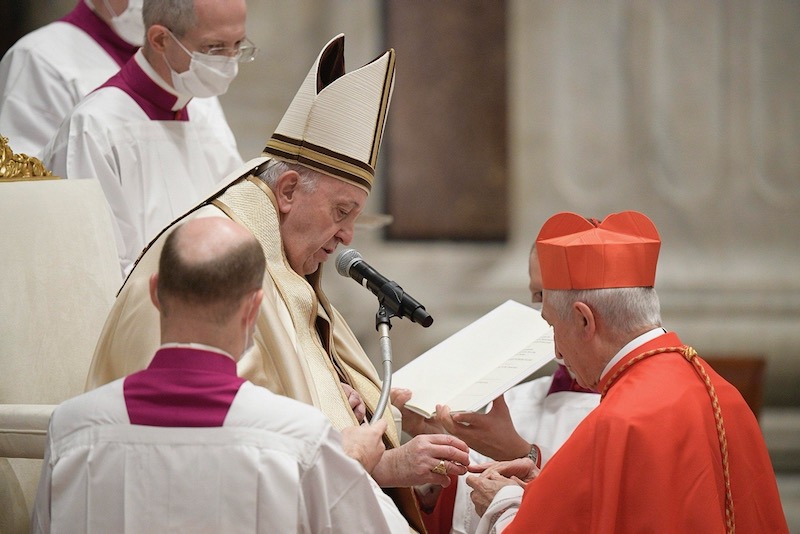The Vatican has hit back at claims it wants to dilute the sovereign status of the Order of Malta as factions inside the ancient Catholic group battle over planned reforms to its governance structure.
Cardinal Silvano Tomasi, the papal delegate to Catholicism’s oldest military order, has written to members saying: “It was never the intention of this commission, nor of the Holy Father, to undermine the sovereignty of the Order, which will be totally preserved.”
The cardinal made his remarks in a 20 January letter which came in response to a letter from a senior Knight arguing that Cardinal Tomasi’s reform proposals “constitute a hazard to its long-held sovereignty”. Albrecht von Boeselager, the Grand Chancellor of the order, said he could not accept the changes and would now be stepping away from the reform process. Both Tomasi and von Boeselager’s letters have been seen by The Tablet.
Founded in the 11th century during the crusades, the Knights of Malta is both a Catholic religious order and a sovereign entity running a global charitable enterprise and has diplomatic relations with more than 100 states. The independence of the order is highly prized as it helps with the group’s charitable works in hard to reach countries.
According to a member of the order with knowledge of the proposals, the planned changes to the order’s constitution and code would have meant the knights “lost their sovereignty”, although Cardinal Tomasi wrote what had been put forward was only a draft and “not yet definitive”.
He said that a meeting between representatives of the order and the Vatican, due to take place on 25 and 26 of January, is going to make changes to the text, which will, in turn, be distributed for further consultation before it is voted on. Tomasi also lamented the “undue sending of the draft” and that any lack of co-operation between the Holy See and the order is “not true.”
|
In his recent book The Outsider, Christopher Lamb reported that Festing resigned because, according to one church source: “He was presented with evidence of acts that breached the order’s constitution”. The source added: “There were more than a dozen witnesses and a huge body of evidence.” For more of The Tablet’s reporting on the Order of Malta: New revelations as Knights of Malta square up to choose new leader. Knights of Malta to reform governance structure. Analysis: Order of Malta bans Old Rite. Wikileaks docs reveal background to Knights of Malta condom row. Pope blocks recruitment as Knights of Malta tussle for control of order. Order of Malta top official removed from post. Vatican insists it does have the authority to investigate Order of Malta.
|
The push for reform in the order is due to the constitutional crisis which took place during the leadership of the late Fra’ Matthew Festing, the former Grand Master of the order. He resigned as leader on January 2017 after a public battle with Pope Francis who ordered reforms to be made. This process, however, has been held up by the death of Festing’s successor, Fra' Giacomo Dalla Torre, the Covid-19 pandemic and the fall from grace of former delegate to the order, Cardinal Angelo Becciu.
In October last year, Francis virtually handed control of the order’s governance to his new delegate, Cardinal Silvano Tomasi, including the powers “to resolve all internal conflicts,” and convene elections to vote for a new Grand Master. It was a decision which a number of knights saw as an unprecedented move. At the time, a spokesman for the order explained that the Pope’s letter “is intended to speed up the reform process” and that “some aspects of the new rules of life for our religious remain to be defined”.
Any new constitution and code for the order is going to include reforms of the small group of professed knights who take religious vows, remain unmarried and traditionally hold the most senior positions in the order. They make up just 38 of the 13,500 knights and dames worldwide, and just 19 are under the age of 70. In addition, the two highest-ranking roles in the order are held by professed knights who must also demonstrate they of “noble-birth”.
There have long been concerns about the quality of religious formation for some of the professed knights, and ensuring this comes in line with Church norms has been top of the Vatican’s agenda. These include following vows of poverty and living a form of community life. Nevertheless, one source inside the order told The Tablet that some of the professed are strongly resisting these changes.
Others, including those in the United States, are seeking more influence in the running of the order and want the nobility requirements, which favour those from aristocratic European families, to be removed. Meanwhile, the Italian knights are also looking to exert greater influence, particularly in regard to the order’s assets.
There have also been those who claim that a German grouping of knights want to “secularise” the order and turn it into “an NGO”. This allegation has often been levelled against von Boeselager.
In his 19 January letter, however, the knight strongly refuted this suggestion, saying: “Nothing could be further from the truth.” The German aristocrat, whose father took part in a failed plot to kill Hitler in World War Two, has been involved at a senior level of the order for many years, including in its charitable endeavours.
It was von Boeselager’s dismissal as Grand Chancellor by Festing, later reversed, that sparked the 2016-17 dispute between the order and the Vatican. Ostensibly about the distribution of condoms, it also became a proxy battle for those opposed to the direction of the Francis papacy. Renowned as a moderate figure, his disagreement with Tomasi is a new twist in the Order of Malta saga given von Boeselager’s sacking had been reversed by a Holy See inquiry, and he was supportive of the Francis pontificate
Festing, however, the second Englishman to be elected Grand Master, was described as an “out and out traditionalist, in doctrinal and liturgical terms,” and fell out with von Boeselager as he sought a greater role for the professed knights.
The Grand Chancellor, a married father of five, said the disagreements with Festing concerned how the order was governed, telling The Tablet in 2018 that he wanted more collegial governance by the Grand Master, especially on financial matters. A former auctioneer at Sotheby’s in Northumberland, Festing was catapulted into high office in 2008 and was recognised in the order for his work helping the poor and the sick on pilgrimages to Lourdes. His supporters also wanted the order to become a bastion of traditionalism, something favoured by Cardinal Raymond Burke, the knight’s patron, who was at the centre of the order’s dispute with the Vatican and who encouraged the dismissal of von Boeselager.
One source inside the order described the reforms as an “incredibly protracted and complicated process”. A draft code and constitution, approved by Grand Master Dalla Torre, just before he died, had been sent to Cardinal Becciu in Easter 2019. But then the process then stalled. Becciu, now one of the defendants in a Vatican financial corruption trial, was then removed from his position. He was replaced by Tomasi, an experienced Vatican diplomat who had led a Holy See inquiry into von Boeselager’s dismissal during the 2016-17 crisis.
A Holy See commission has been working on reforms, and Tomasi stressed that the new constitution and code of the order “started from the text” that was sent to Becciu in 2019, which he said was “the result of long work carried out by many members of the Order and whose synthesis, drawn up by the government, was precisely the basis of our reflection.”
In his letter, von Boeselager said that Marwan Sehnaoui, the president of Lebanese Association, and another knight, Peter Szabadhegy, a former Hungarian Ambassador to the United Kingdom, would take over as the lead members in the order for the reform process.
Sehnaoui had been part of the inquiry team led by Tomasi several years ago, and in 2012 was sent by Festing to investigate safeguarding failures in the British branch of the order. The safeguarding failures led to the order being barred from the Church of the Hospital of St John and St Elizabeth in North London with which it has a centuries-old connection. A decade on from the incident, the order is still unable to access the church. The Tablet approached Sir Mark Allen, the chairman of the hospital and a former senior MI6 officer, to comment on the situation but did not receive a reply.
Meanwhile, what von Boeselager describes in his letter as a “historic constitutional reform process” of the Knights of Malta is likely to see more twists and turns ahead.



 Loading ...
Loading ...